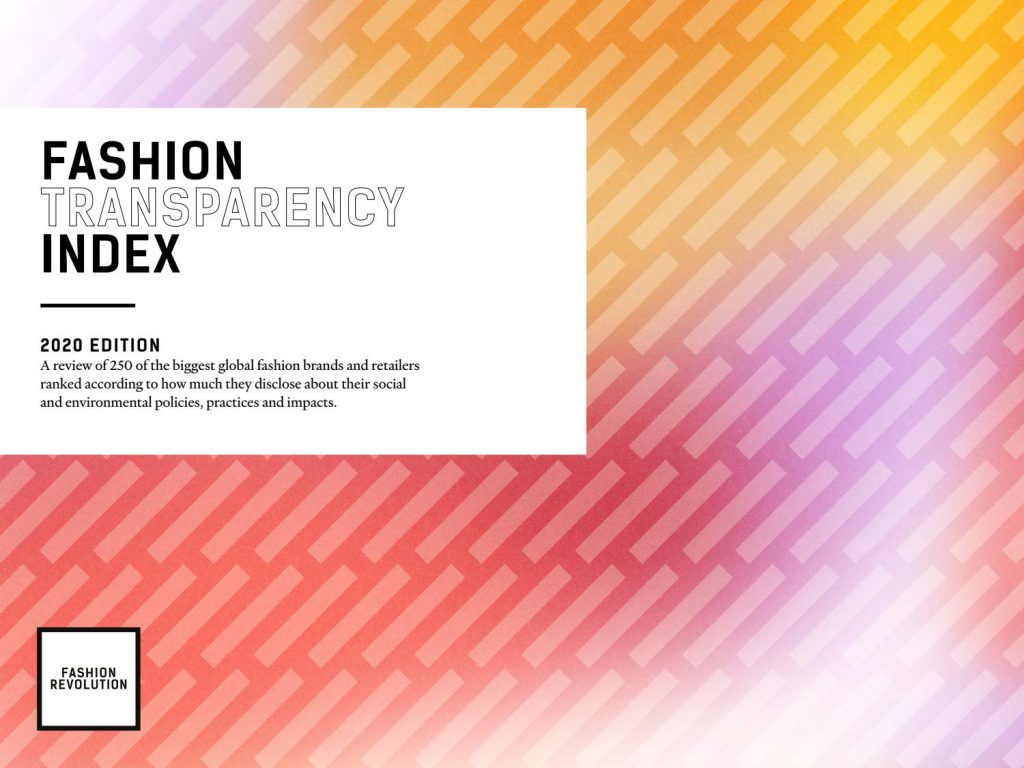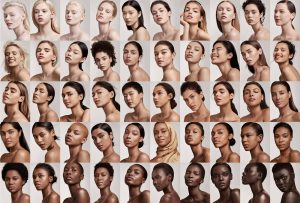
Fashion Transparency Index 2020
This year, Fashion Transparency has reviewed 250 of the world’s largest fashion brands and retailers and ranked them according to how much they disclose about their social and environmental policies, practices and impacts.
The Index is a tool to incentivise and push major brands to be more transparent, and encourage them to disclose more information about their policies, practices and supply chain. Transparency isn’t about which brand does the best, but about who discloses the most information. Transparency does not equal sustainability. Brands may be disclosing a lot of information about their policies and practices but this doesn’t mean they are acting in a sustainable or ethical manner. We know that the pursuit of endless growth is in itself unsustainable. However, without transparency we cannot see or protect vulnerable people and the living planet.
Public disclosure invites us in, and allows us to exercise our right to find out more, non-disclosure perpetuates a non-inclusive system, where citizens are expected to trust brands who have continued to put profit and growth above all else.
Lack of transparency costs lives. When the Rana Plaza factory collapsed seven years ago, killing and injuring thousands of garment workers, people had to dig through the rubble looking for clothing labels in order to figure out which brands were producing clothes there. It is impossible for companies to make sure human rights are respected, working conditions are adequate and the environment is safeguarded without knowing where their products are being made. That’s why transparency is essential. It is the first step in holding brands to account for the human rights and environmental impacts of their practices.
Transparency requires that companies know and share #WhoMadeMyClothes – from who stitched them right through to who dyed the fabric and who farmed the cotton — and under what conditions.
In our first country specific edition of the Index, the Fashion Transparency Index Brazil has driven increased public disclosure of brands’ human rights and environmental policies, practices and impacts from 30 of the largest brands operating in the Brazilian market.
In which C&A was considered the most transparent fashion company in Brazil in 2019, by achieving 64 percent of the total possible points of the transparency index that year. The Fashion Transparency Index ranks brands and retailers based on how much information they disclose about their social and environmental policies, practices and impact. Malwee and Renner ranked second and third respectively, each with over half of total possible points scored.

fashionabc is a fashion technology platform, comprising a digital directory and various other digital tools and supply chain solutions for the fashion industry ecosystem, that focus on ethical fashion and sustainability. We are building inclusive digital transformation tools for fashion professionals who are willing to take steps towards a more sustainable ethical fashion industry, by adopting AI and DLT blockchain technology.
* building digital profile and IP solutions for fashion businesses
* tackle issues such as provenance and counterfeit in supply chain
* contribute to the construction of a meritocratic ethical fashion industry which is certified and part of the circular economy










